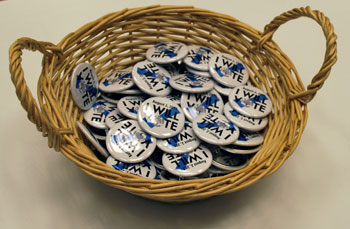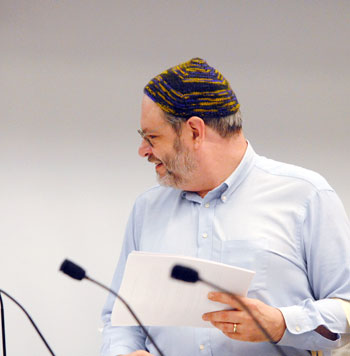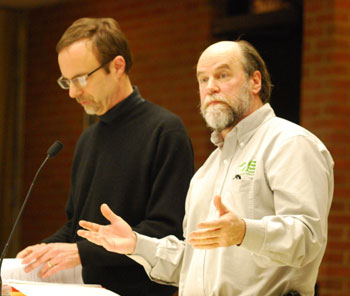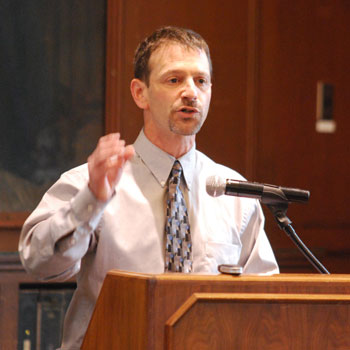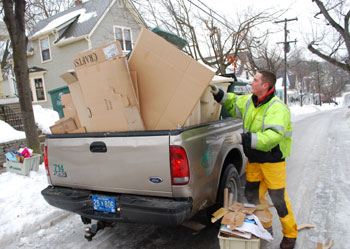At its July 5, 2011 meeting, the Ann Arbor city council voted against increasing the payment it makes to Recycle Ann Arbor (RAA) for curbside collection of the city’s single-stream recycling carts – from $3.25 to $3.55 per month per cart. The vote was made without any deliberations and resulted in 5 votes for it and 4 against. Voting against it were Stephen Kunselman (Ward 3), Carsten Hohnke (Ward 5), Mike Anglin (Ward 5) and Sabra Briere (Ward 1).
The city council had voted on March 15, 2010 to adopt the single-stream recycling program, which began exactly one year ago, on July 5, 2010.
At that time, the city approved a contract with RAA that called for a payment of $3.25 per month per cart that RAA empties, plus a per-ton payment of between $18.74 and $30.00. The amount of revenue RAA has received through these two kinds of revenue was less than projected last year. Specifically, the tonnage payments received by RAA for fiscal year 2011 (which ended June 30) for recyclable material were projected to be $406,332 but in fact only generated $187,560 for RAA – only 46% of what was expected. The shortfall was $218,772.
Also, the city expected to distribute 32,779 carts, but it turned out that only 29,734 carts were deployed, or 9.3% fewer than planned. The staff memo accompanying the resolution explained the reduced number this way: “… many of the smaller multi-family residential units that were previously using the 11-gallon recycling ‘totes’ are able to share recycle carts, resulting in a smaller number of deployed carts.” In terms of revenue, the reduced number of carts meant that RAA received only $1,159,626 compared to the projected $1,278,381 – for a shortfall of $118,755.
Summing the shortfalls in the two kinds of revenue ($118,755 + $218,772), RAA received $337,527 less than it expected for FY 2011. The increase in the monthly per-cart service fee requested (but rejected by the council) – for all five years of the five-year contract – would have worked out to nearly cover the annual shortfall that was due only to the decreased number of carts: $107,042 versus $118,755.
The overly-optimistic projections were made by the city’s recycling consultant Resource Recycling Systems and RecycleBank, a company that administers a coupon-based incentive program to encourage residents to recycle. When the council approved the single-stream recycling contract with RAA last year, it also struck a 10-year deal with RecycleBank, at roughly $200,000 per year, to administer their coupon-based incentive program to help boost recycling rates in conjunction with the single-stream rollout.
At the time, Stephen Kunselman (Ward 3) questioned the length of the RecycleBank contract, and established in the course of deliberations that the city’s opt-out clause would be less costly than the cost of the contract. He was concerned that the city had options in the event that RecycleBank’s incentives did not boost recycling tonnage to the levels that were forecast. ["Council Banks on Single-Stream Recycling"]
This brief was filed from the city council’s chambers on the second floor of city hall, located at 301 E. Huron. A more detailed report will follow: [link] [Full Story]




